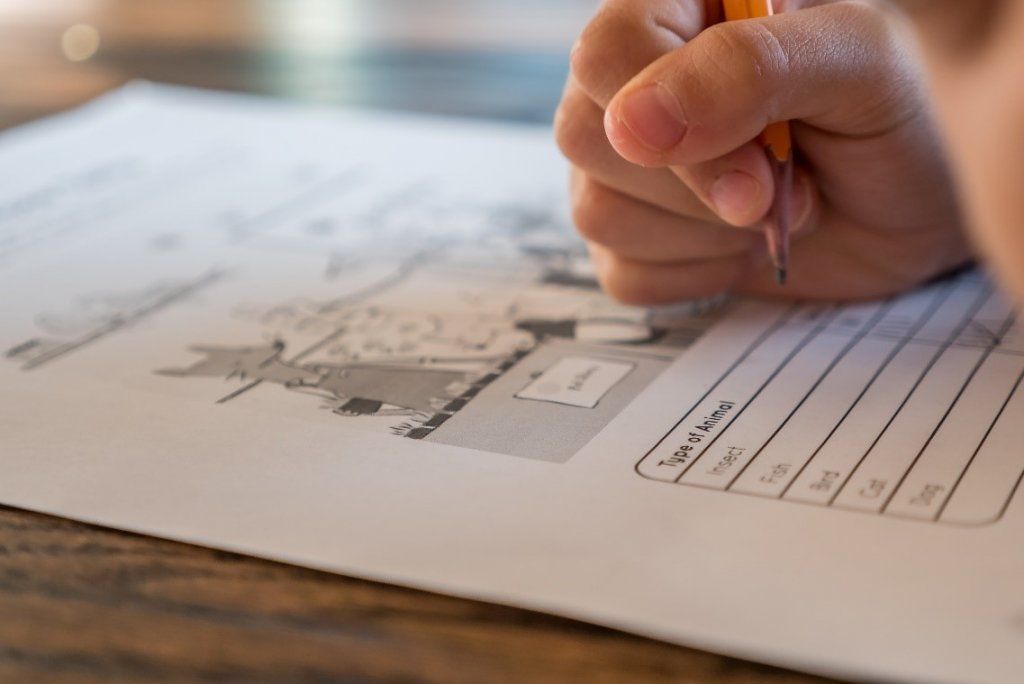
26 Sep 5 Successful Revision Tips for PSLE
Do you wish to know how to prepare or revise (or assist your child in revision) for PSLE? Many students make use of different methods depending on their learning styles, and the Internet is filled with revision tips and step-by-step guides.
Here we have 5 successful revision tips that will assist you in achieving an appreciable effectiveness in your studies. These tips will be of help to you no matter your style of learning or revision strategy, and they are endorsed by cognitive psychology and memory studies. You can be sure to enjoy advantages and an exponential growth in outstanding results when you employ these tips in your early primary school years.
Study using Past Questions

This is not to imply that the questions will always be the same but you can know what to expect and prepare along that line before the exam comes. Past exam questions give you an idea of the standards you will face on the exam. It is necessary that you find these papers and answer the questions. As much as you don’t expect the same questions to be repeated over and over again, studying with past questions will help you boost your ability to answer questions that have appeared always in recent years. Studying with past questions helps reveal mistakes you are likely to make during the exam. Since you are just practicing, those mistakes do not hold any weight.
Customize Your Learning

Customizing your learning is more like encoding your knowledge in a way that you alone understand. When you create, process, and structure what you learnt in your own way, it is more likely to be stored in your long-term memory than passively read knowledge. Passive learning which is restricted to re-reading notes is considered inefficient by psychologists when compared to active learning which involves finding patterns, creating summaries, linking to another knowledge. Active learning sponsors the creation of cheat sheets. This does not suggest that you use it for cheating but simply contains encoding that only you can interpret. This does not only help you remember key points that serve as memory cues to other related points, but it also helps you summarize all of the essential points that you must know in one quick reference.
Study Just before Going to bed
Though it has been widely used or spoken, do you know that while you are asleep, your brain plays back all the events of the day, and this replay scribbles memories of those events with indelible ink? This effect holds more weight for activities that occur just before you fall asleep.
so, going over what you studied during the day is not only a good learning strategy in and of itself, but it is more effective when it is done just before you go to bed to boost the result. This also suggests that it is important to get enough sleep and quit staying up late into the night. Taking time to sleep creates an avenue for long-term memories to be formed and reactivated. As a result, the memory of all you have learnt in the day is not lost but engraved.
When we deprive yourself of sleep trying to cram as much information as possible, we eat into the sleep time we would have had, and are exposed to the risk of forgetting what we read at night, and even forget what we learned during the day. Since you now know that sleeping is the best way to keep what you’ve learned fresh in your memory, instead of cramming at midnight, why not choose to enjoy your sleep? This is no way suggesting laxity at all but strikes a balance between reading for long hours and getting commensurate quality of sleep. You can go ahead to read at night if that works for you but don’t forget to sleep after that.
Teach Others

After you have read, studied with past questions, customized your learning and revised just before you sleep, there is one more thing that helps you retain all that you have learnt. At this point, you have to attempt passing what you have learnt on to someone else.
Sharing what you have learnt with someone else allows you to take a different approach. Here you are no longer just trying to get an understanding of a concept, but now you are helping someone else to understand it in a way that he or she can. When you pass on knowledge to someone else, you must speak as you communicate your understanding of a concept in an organized manner so that you are understood by your partner. Doing this will help you to see gaps in your understanding that you would not have noticed while engaging the aforementioned tips. The beautiful thing about teaching is that it is a two-way thing. You are both revising and teaching all at the same time.
Go From Memorization to Understanding

For fields of knowledge like Mathematics and Science, understanding concepts is very instrumental in your learning journey. When all you do is to memorize concepts over and over, you will only at best be able to answer specific types of questions using specific parameters alone. But you need to know it beyond the unique case you can solve. However, PSLE questions are structured to assess your understanding, and you are likely to come across questions that you have not seen before. These questions will demand that you engage your understanding and application of knowledge to solve the problem or give an accurate answer.
Since this is the case, your study approach must be with the goal of understanding instead of memorizing. Dig into the meaning of certain concepts or how they work. Search for patterns. Compare it to other things you’re conversant with. Make illustrations. These strategies will ensure you understand certain concepts and how they work, alongside its application in a wide range of similar cases. It will prepare you to deal with new questions.


